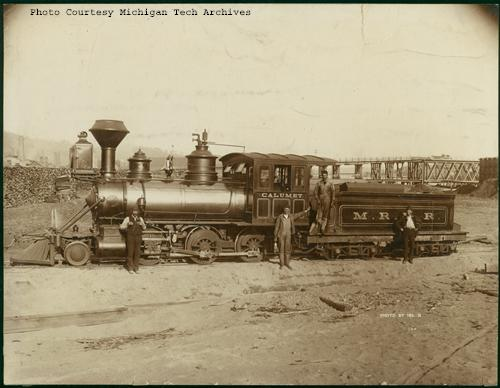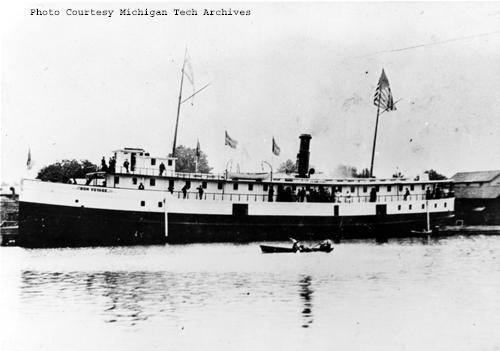Please join us for visiting scholar Paul Lubotina at 4:00 pm on Wednesday, January 14 in the East Reading Room of the Van Pelt and Opie Library on the Michigan Technological University campus. This event is free of charge and open to the public. Refreshments will be served.
In this presentation, Lubotina will give a research talk on his new book Serbians in Michigan, published by the Michigan State University Press as a part of its Discovering the Peoples of Michigan series. The talk will examine the lives of Serbian immigrants from lowland areas of the Balkans and the distinct highland culture of Montenegro. Lubotina will provide cultural background to Serbian society that serves as a benchmark for the changes that occurred amidst the population after arriving in Michigan. A key theme in Lubotina’s book is how the Serbian Orthodox Church has maintained Serbian heritage and nationalism through several generations in America. The talk will conclude with a discussion of Serbian cultural contributions, including music, religion, dancing and food.
Lubotina was born into a third generation iron mining family of Serbian and Finnish heritage on Minnesota’s Mesabi Iron Range. He has studied at the University of Minnesota, the University of Helsinki, the Renvall Institute and Saint Louis University. His studies of Finnish diplomatic history led him to cultivate relationships with Vatican scholars, who helped him complete his master’s thesis on Finnish-American relations in the World War II era. These Jesuit scholars also supported his admittance to the graduate history program at Saint Louis University. While in Saint Louis, his focus on European history began to examine the integration process of immigrants who came to the United States. In his doctoral dissertation, he wrote about the role conflict played in restructuring Nordic, Slavic and Latin communities in Minnesota mining districts. He currently teaches at Middle Tennessee State University where he has published articles on ethnicity, integration, immigrant labor organizations and racism.
Lubotina’s research visit and presentation are supported by a travel grant from the Friends of the Van Pelt Library. Since 1988, the Michigan Technological University Archives Travel Grant program has helped scholars advance their research by supporting travel to the manuscript collections at the Archives.
For more information, feel free to call the Michigan Tech Archives at 906-487-2505, email at copper@mtu.edu, or visit on the web at http://www.lib.mtu.edu/mtuarchives/.

